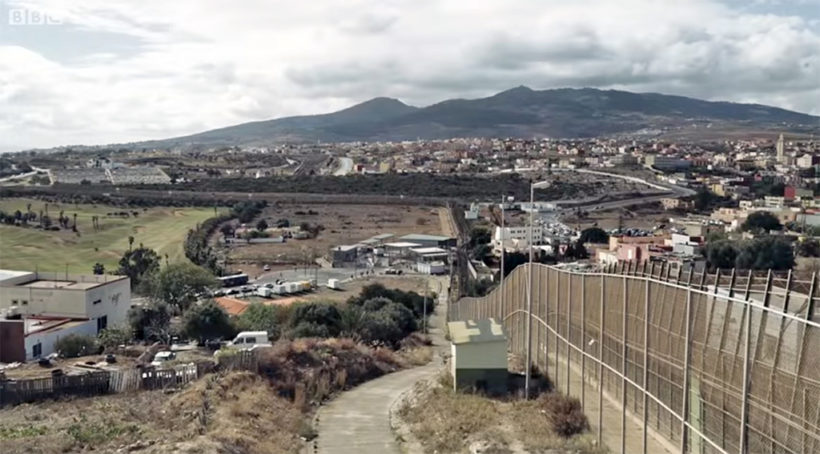Border tensions between the governments of Spain and Morocco are accelerating the process of implementing biometric control systems at the borders of Ceuta and Melilla. In view of this, various groups point out the danger of these racist measures.
By Salto Diario
In 2019 Marlaska announced that Interior would spend 4.1 million for the implementation of a series of technological systems to reinforce the borders of the cities of Ceuta and Melilla. Due to tensions between the governments of Spain and Morocco over migration controls, an inter-ministerial commission was created in 2020, comprising the Presidency, Territorial Policy, Interior, Foreign Affairs, Finance, Health and the CNI, to speed up the implementation of this and other measures at the border crossings between the two countries.
The Spanish government is thus joining the European trend of collecting biometric data at its borders through the use of so-called artificial intelligence (AI) systems, such as facial recognition cameras. Faced with the advance of this project, more than 50 anti-racist associations and groups working in the defence of human rights, including SOS Racismo, Centre Delàs, Oxfam and the Madrid and Barcelona Manteros trade unions, have expressed their serious concern.
“It is well known that facial recognition algorithms often produce false positives and false negatives on non-Caucasian faces, which, in this particular context, could have serious consequences for people wrongly identified as terrorist suspects,” they add. As with other similar applications of such systems in public spaces, such as bus and train stations, the whole process suffers from a clear lack of transparency and auditability.
For these reasons, the platforms that sign the manifesto demand the implementation of the legislation drafted by the European Council on AI and data protection regulation to be applied also in these contexts, such as at borders, which are an exception as they are called ‘secure’. They also ask that, in case these systems are applied, they should be applied with the proper information and consent of those who are registered by them, which would require the systematic incorporation of human rights observers at the border.
Finally, in addition to systems of audits and state control, they demand that the algorithms that operate in these systems be made public so that civil society organisations can also analyse and investigate them.












